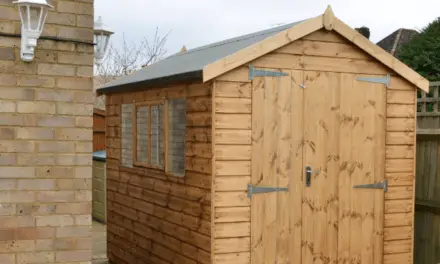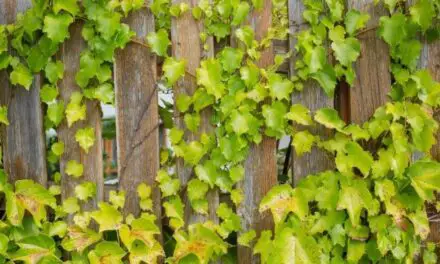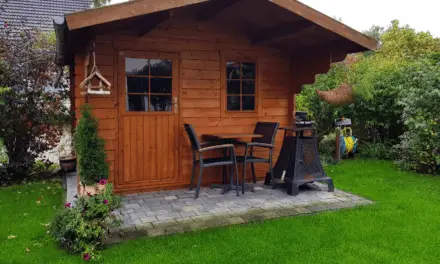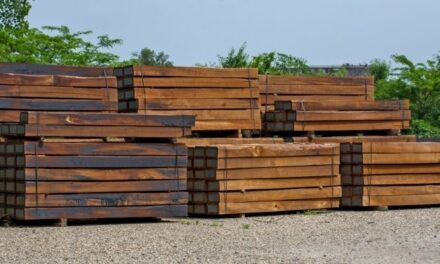Natural wooden fences look great around your property. They are also environmentally friendly, and relatively easy to install.
But wood is not the most durable of building materials, especially when it comes to moisture.
Table of Contents
Will Soil Rot My Fence?
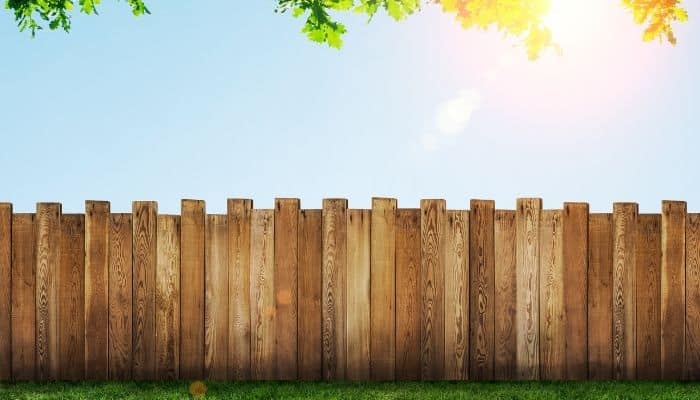
Yes, the soil will rot your fence. However, it’s not necessarily the soil itself that causes rot but the moisture damage that the wood sustains over time. This will eventually weaken the wood and cause it to rot and split.
How Do I Prevent My Fence From Rotting?
Wood will always eventually rot but the idea is to keep your wooden fence from rotting for as long as possible.
Your fence is going to rot at some point in the future.
But there are some things you can do to get many additional years out of your fence.
Use High-Quality Pretreated Wood
The first and most important aspect in preventing your fence from rotting is to use wood that’s high quality and pressure treated.
Use posts that are rated for burial or ground contact as they will have more chemical treatment in them.
Filling post holes with gravel instead of concrete will also help to keep the wood drier and prevent mold and rot.
Redwood, pine, spruce, or cedar are ideal to use because they are naturally more resistant to rot and decay.
The preservative used in the process to pressure treat the wood can resist almost any kind of rot along with bugs and water damage.
The other materials used to construct the fence should also be high-quality.
Things like stainless or galvanized steel, for nuts, bolts, washers, latches, and hinges are a good choice and very resistant to corrosion.
Also Read: Can I Build A Shed Next To My Neighbor’s Fence?
Use Gravel Boards
For a strong fence that’s resistant to rotting, a gravel board is crucial.
It’s simply a slab of wood or concrete that lifts your fence off the ground.
You can use a wooden one, but concrete is better against water damage, insects, and rot.
It gives your fence a finished appearance, provides a solid foundation for panels, and hides horrid-looking gaps.
Use Concrete Posts
If a gravel board doesn’t seem like a good idea for your situation, you can install concrete posts instead.
These offer a lot of durability and security.
But, if concrete isn’t something aesthetically pleasing you may be better off with a natural wooden fence.
Seal And Stain Your Fence
Even when you install a new fence, you will have to keep up with staining and sealing the wood every so often.
Doing this right when you notice it fading or wearing away will help prevent the wood from sustaining the kind of water damage that leads to rot.
Creeping Plants And Trees
It’s usually safest not to put any unpotted plants, trees, or flowers growing next to your fence if you want to prevent rotting and damage for as long as possible.
Unless you plan to use concrete, then plant away to your heart’s desire.
But if you plan on a 100% wooden fence, keep the plants away.
The strong roots and branches of larger trees can eventually grow to damage your fence.
Some climbing vines can also hold on to lots of water and expose your wooden fence to additional moisture.
And this can create the perfect conditions for fungus and rot to take hold.
Regular Inspection, Cleaning, And Maintenance
Always inspect your fence after it rains and when spring arrives.
If you spot anything funny or notice rot developing, replace the panels as soon as you can.
Also, clean your fence on occasion with baking soda and vinegar rather than a power washer.
If you want to avoid rotting through water damage, keep water away from your fence as much as possible.
Staying on top of repairs, including the materials used to construct the fence, will help prevent rotting and keep your fence in good condition.
Use A Professional
If money isn’t an issue, a good way to ensure that you prevent your fence from rotting is by hiring a reputable and respectable specialist to install the fence for you.
They’ll know and abide by building regulations and have access to the best materials along with the most up-to-date methods.
Just make sure they have lots of good independent and verified reviews so that you can be sure you are purchasing a quality service.
Even if you are able to pick out problems when you do your inspections, it’s always a good idea to have your installation professional check your fence from time to time.
This way there won’t be any chance for rot to take hold of the wood.
How Long Will My Wooden Fence Last
If using cedar, you should aim to get between 10 and 20 years out of a typical fence when it is placed directly into the soil.
Whether your fence lasts closer to 10 or 20 years will depend on how dry you can keep it and how quick you are to spot decay and mold eating at your fence and also how well, in general, you maintain it.
If the wood can be kept out of soil and pressure treated it will last a lot longer.
You can also use wider fence posts which will give you more life due to their bigger size.
If possible use posts that are 6×6 instead of 4×4.
Unfortunately, if you just build your wooden fence directly into the soil, you can expect to get between 10 and 20 years of life out of it.
Can I Save My Rotting Fence?
Usually, once a wooden fence has started rotting there’s not much you can do to save it and it is probably time to start planning for a new fence.
If one or more posts are rotting beneath the surface of the soil then the entire structure has probably been weakened.
Trying to dig out and replace old posts can be tedious, expensive, and just delaying the inevitable.
Sometimes it’s just best to bite the bullet, replace the entire fence, and be done with it.
The last thing you want is for it to blow over on top of someone or for someone to get hurt climbing over it.
Final Thoughts
A wooden fence can be a gorgeous way to protect your property and add to its value, providing privacy for many years.
But water damage can be a problem if it goes unchecked for far too long.
Using the right materials from the start along with a good care and maintenance routine is key in avoiding rot and getting years out of your wooden fence.

